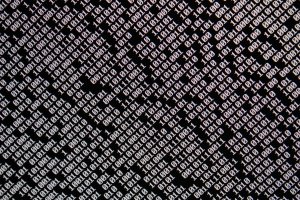Did you know that it has been more than two years since the launch of Google Glass? But are we all walking around with Google Glass attached to our heads? Apparently not. Writing for the MIT Technology Review in 2014, Rachel Metz explains that Google Glass has not been a great success putting it mildly. In fact she argues that it is “going nowhere”. Indeed, Metz points out that:
“It’s still not a finished consumer product. It’s not even close to being something people yearn for, at least not beyond the Glass Explorers who each paid $1,500 for early access.”
Google is not done with Google Glass, argues Metz, but at the same time a number of other companies have stopped being committed to it. For example, Twitter is reported to have stopped creating apps for Google Glass. Metz also explains that even the product’s early adopters did not find it to be particularly useful for very much, and to boot, it tended to disturb other people around them, the fact that a person was wearing Google Glass. In fact, the Glass seen on the faces of others has been found to be rather provocative to some, who term Google Glass’s early explorers as “Glassholes”.
Google may not have succeeded with its Google Glass product, but the concept behind Google Glass is not going anywhere according to Metz. There is plenty to be encouraged about by Google Glass and the ideas behind it. However, there is a goal to make the technology less noticeable and consequently less annoying to others. While as Metz explains, Google Glass juts out from glasses frames and sits right above a person’s eyeball, immediately obvious to anyone that person comes to contact with. It is not possible to forget it is there because it is in everyone’s face. Less obvious solutions are being worked on according to Metz. For example, Lumiode is using LEDs to try to achieve this. In the future it could be possible for a Lumiode product to be built into a pair of smart glasses and eventually to fit into the frame. A less obvious solution like this would be more palatable for many.
One problem that still needs to be solved in the eyes of Metz is that of power. The problem is that smart glasses need a battery pack that will allow a person to use them for a day at a minimum, without the overt batteries that can be seen in the Google Glass product. This is challenging to achieve – after all think how long your phone stays charged when it is continually being used. Google Glass has however, been working in this area and achieving some success, argues Metz. Specifically rechargeable batteries produced by a company like Imprint Energy would allow batteries to be concealed in the frames of the glasses, hiding away a good degree of the bulk. At the same time, Metz suggests that power harvesting would also be useful so that the batteries can keep charging through the day.
Metz points out that Google has worked hard to try to make Google Glass appear to be more fashionable. It has even teamed up with Luxottica, a company excelling in this area, whose brands include Oakley and Ray-Ban. Google also tried to get an improved frame for Google Glass by getting designer Diane von Furstenberg to create more attractive frames. This has allowed a range of different colours and frames to choose from for Google Glass wearers. This does, as Metz suggests, sound somewhat banal, but people have to be comfortable wearing Google Glass around to be able to consider buying it, so it is pretty important. The end goal is that customers would be able to select a frame that they would normally pick and the Glass would be a part of that.
Metz believes that good looking frames are simply not enough to bring in more customers. The fact that there is a computer on the person’s face that is really obvious and distracting is a major drawback, and Metz argues that no amount of style in a set of frames will fix that. The point is that the technology really does have to become part of the frame itself. While in part if the numbers of people that wear Glass increase could make them seem more normal, there is still a long way to go yet for Google Glass.

Paula Newton is a business writer, editor and management consultant with extensive experience writing and consulting for both start-ups and long established companies. She has ten years management and leadership experience gained at BSkyB in London and Viva Travel Guides in Quito, Ecuador, giving her a depth of insight into innovation in international business. With an MBA from the University of Hull and many years of experience running her own business consultancy, Paula’s background allows her to connect with a diverse range of clients, including cutting edge technology and web-based start-ups but also multinationals in need of assistance. Paula has played a defining role in shaping organizational strategy for a wide range of different organizations, including for-profit, NGOs and charities. Paula has also served on the Board of Directors for the South American Explorers Club in Quito, Ecuador.



























